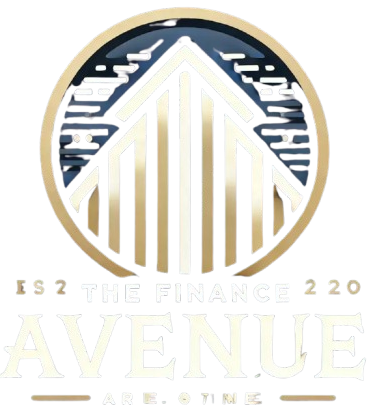Best 3-Month CD Rates for February 2025
Category
Categories

Discover the leading 3-month CDs offering competitive rates nationwide
The Finance Avenue highlights Brilliant Bank as providing the highest 3-month certificate of deposit (CD) rate at 4.60% APY. Our thorough review of CDs from various financial institutions ensures we present the top 3-month CD rates available nationwide. These rankings include CD terms ranging from 2 to 4 months, with minimum deposit requirements varying up to $25,000. The data on CDs and rates presented was gathered, validated, and open for account opening as of Feb. 7, 2025.
For individuals with short-term financial goals, a 3-month CD can offer an attractive option. Below are the leading CD rates offered by our partners, as well as our independently researched best CD rates available to U.S. customers nationwide.
In the News
The Finance Avenue reported that The Fed decided to maintain rates at its Jan. 29 meeting following a series of three rate cuts starting in September. Since then, the federal funds rate has been decreased by a full percentage point to a range of 4.25%–4.50%, the lowest range since February 2023. Committee members anticipate a slower rate cut pace in 2025, as indicated in December, and the decision in January aligns with that strategy. CD rates are closely linked to the fed funds rate, implying that CD rates are likely to decrease alongside the Fed’s rate cuts.123
Top CD Rates for 2-4 Months
Below is a list of the best CD rates available for terms ranging from 2 to 4 months. In situations where multiple financial institutions offer the same annual percentage yield, we have ranked the CDs based on the shortest duration first, followed by the CD with a lower minimum deposit requirement. If there is still a tie, the CDs are listed alphabetically by the institution’s name.
Best 3-Month Certificate of Deposit (CD) Rates
Below are the top-performing nationally available three-month CDs, along with details on their minimum deposit requirements and penalties for early withdrawal. Additionally, we include instructions on how to join each credit union offering these CDs.
Brilliant Bank – 4.60% APY*
*Online accounts from Brilliant Bank are not accessible to individuals residing in Arkansas, Kansas, Missouri, and Oklahoma.
PonceBankDirect – 4.50% APY
PonceBankDirect offers a competitive Annual Percentage Yield (APY) of 4.50% on their Certificate of Deposit accounts. This high APY can help customers grow their savings faster compared to traditional savings accounts. By investing in a Certificate of Deposit with PonceBankDirect, individuals can take advantage of this attractive interest rate and watch their money work for them.
Quontic Bank – High Yield Savings Account Offer
Quontic Bank is currently offering a competitive annual percentage yield (APY) of 4.50% on its high yield savings account. This attractive rate allows customers to earn significant interest on their savings, making it an appealing option for those looking to maximize their returns.
With Quontic Bank’s high yield savings account, customers can take advantage of a generous APY while still having easy access to their funds. This combination of high interest rates and liquidity makes it a practical choice for individuals seeking to grow their savings without sacrificing flexibility.
By opting for Quontic Bank’s high yield savings account, customers can benefit from the opportunity to earn more on their money compared to traditional savings accounts. This can help them reach their financial goals faster and build a stronger financial future.
Overall, Quontic Bank’s high yield savings account stands out as a compelling option for individuals looking to make the most of their savings while also having the flexibility to access their funds when needed.
Bask Bank – 4.50% APY
Oklahoma Community Credit Union – 4.50% APY
Oklahoma Community Credit Union offers a competitive APY of 4.50% for members of the Oklahoma Community Credit Union.
Securityplus Federal Credit Union – 4.50% APY
Nuvision Credit Union – 4.50% APY
Nuvision Credit Union is offering a high Annual Percentage Yield (APY) of 4.50% through Nuvision Credit Union. This competitive rate provides an excellent opportunity for individuals looking to grow their savings efficiently. By taking advantage of this offer, customers can benefit from a substantial return on their investment.
MutualOne Bank – 4.49% APY
MutualOne Bank and offers information regarding MutualOne Bank’s 4.49% APY.
Interior Federal Credit Union – 4.40% APY
American Bank – 4.40% APY
Dow Credit Union – 4.40% APY
Bank5 Connect – 4.35% APY
Merrick Bank – 4.35% APY
Popular Direct – 4.30% APY
Popular Direct offers a competitive APY of 4.30% through Popular Direct, providing customers with an attractive option for maximizing their savings.
Beal Bank – 4.30% APY
It is essential to compare the interest rates of 3-month CDs with high-yield savings accounts. While traditional savings accounts offer minimal interest, high-yield savings accounts can provide rates higher than a 3-month CD without restricting access to your funds.
Pros and Cons of 3-Month Certificates of Deposit (CDs)
1. Offers high level of safety and predictability
2. Helps in resisting the temptation to spend impulsively
3. Provides flexibility after a brief commitment period
4. Potential for a higher Annual Percentage Yield (APY) compared to regular savings accounts
5. Early withdrawal results in a penalty
6. Might offer a lower APY than high-yield accounts permitting withdrawals
7. Requires making decisions about fund allocation again within a short timeframe
Pros Explained
The Finance Avenue, offers a detailed, informative breakdown of investment practices and financial concepts. This platform provides valuable insights and explanations for various financial topics, making it a go-to resource for investors and individuals looking to enhance their financial knowledge. Through expertly written articles and guides, The Finance Avenue delivers clear explanations and analysis, helping readers navigate complex financial strategies and decisions with confidence. Whether you are a beginner or an experienced investor, The Finance Avenue can assist you in understanding key financial principles and implementing successful investment strategies.
Disadvantages Detailed
Key Statistic
During a November survey, 13% of readers on The Finance Avenue disclosed that they are allocating their investment funds towards Certificates of Deposit (CDs), a percentage that ranks equally with government bonds but falls below Exchange-Traded Funds (ETFs), individual stocks, index funds, and money market funds.
Compare the Top 3-Month Certificate of Deposits
Alternatives to 3-Month Certificates of Deposit
When it comes to investing your money for a short period, 3-month Certificates of Deposit (CDs) are a popular choice. However, there are other options to consider that may offer different benefits. Here are some alternatives to 3-month CDs:
Savings Accounts
One alternative to 3-month CDs is a high-yield savings account. While the interest rates may not be as high as a CD, savings accounts offer more liquidity, allowing you to access your funds more easily.
Money Market Accounts
Money market accounts are another option to consider. They usually offer higher interest rates than traditional savings accounts and provide some check-writing capabilities, making them a convenient choice for short-term investments.
Short-Term Bond Funds
Short-term bond funds are investment funds that focus on fixed-income securities with short maturities. They can offer higher returns than CDs, but they also come with higher risks.
Consider these alternatives to 3-month CDs when deciding where to invest your money for the short term. Each option has its own set of benefits and risks, so make sure to choose the one that aligns with your financial goals and risk tolerance.
Savings or Money Market Accounts
Instead of locking up your money in a 3-month CD, consider keeping it in a liquid savings or money market account instead. This allows you to access your funds when needed. Make sure to compare different accounts to find a high-yield rate that is equal to or higher than what a 3-month CD can offer.
It’s important to note that the interest rates on savings and money market accounts can change at any time since they are variable. On the other hand, a CD offers a fixed rate for the entire term, but with a 3-month certificate, your return is not guaranteed for a long period.
Longer-Term CDs
Instead of opting for a 3-month CD, you may consider extending to a 6-month or 1-year certificate, or even a longer term based on your comfort with locking away your funds. Choosing a longer term often leads to better rates as 3-month terms usually offer the lowest returns among CDs.
Treasury Bills
An alternative to a 3-month CD is investing in U.S. Treasury bills. These bills enable you to lend money to the U.S. government for a fixed, short period. Known for their safety, Treasury bills provide investment durations from four weeks to one year.
Commonly Asked Questions
What Is a 3-Month CD?
A 3-month CD is a type of certificate of deposit offered by banks and credit unions with a maturity period of approximately 90 days. This financial product involves an agreement between the individual and the financial institution in which the individual deposits a specific amount of money and keeps it in the institution for the agreed-upon period.
By opting for a 3-month CD, the account holder receives a higher interest rate compared to a standard savings account. Typically, a 3-month term is the shortest duration for CDs offered by most banks and credit unions, although some institutions may have a minimum term of six months.
Distinguishing CD, Savings, and Money Market Accounts
Savings accounts, money market accounts, and CDs are known as deposit accounts, designed for holding cash savings in a bank or credit union. Savings accounts and money markets share similarities, while certificates of deposit have unique features.
Savings accounts offer easy access to funds, allowing withdrawals at any time. Deposits can be made in a lump sum, scheduled automatically, or sporadically as funds become available.
A liquid account permits deposits and withdrawals as needed. Money market accounts fall into this category, typically offering check-writing capabilities.
Certificates of deposit function differently. Requiring an initial lump sum deposit that cannot be touched until the term ends, CDs are illiquid accounts. However, the trade-off for limited access is a higher interest rate, compensating for the lack of immediate availability of funds.
Who Can Gain the Most from a 3-Month CD?
While certificates of deposit offer a way to earn higher interest for those willing to lock in their funds for a short period, 3-month CDs may not always provide a significant interest rate advantage. In some cases, opting for a high-yield savings account could result in higher earnings without the need to commit to a longer term.
However, there are individuals who could find value in choosing a CD over a liquid account. For those prone to impulsively spending their savings, the added hurdle of making funds less accessible by placing them in a CD could serve as a deterrent against unplanned expenses.
What Are the Typical Rates for a 3-Month CD?
Interest rates for 3-month CDs can vary significantly among the numerous banks and credit unions offering these financial products. These rates are influenced by changes in the Federal Reserve’s federal funds rate, underscoring the importance of researching and comparing options before making a decision.
Currently, the FDIC national rate average for 3-month certificates stands at 1.47% APY. However, our comprehensive assessment of the leading 3-month CD rates reveals that many institutions offer significantly higher returns than this national average. By exploring various options and considering institutions beyond your current banking relationships, it is possible to earn three to five times more—or even greater returns—than the national average.
How Can I Become a Member of One of the Credit Unions Listed?
Credit unions have a unique membership requirement where individuals must become members in order to open accounts. The process of joining a credit union is usually straightforward and cost-effective.
In order to be included in our national rankings, all the credit unions listed must provide a pathway for any adult residing in the U.S. to join, regardless of their location or employment. Becoming a member often involves a nominal donation to an associated nonprofit organization, which can be as low as $5, along with maintaining a small minimum balance in a savings account (typically around $5). Some credit unions have no joining fee or donation requirement at all.
Financial Institutions Included in Our Analysis
Our team at The Finance Avenue meticulously analyzed over 250 banks, credit unions, and financial institutions to curate the list showcasing the top CD rates displayed above. Although we provide detailed reviews for the majority of these entities, we may not cover those that do not meet our standards. The following are the financial institutions we thoroughly researched, accompanied by links to their respective reviews for a deeper understanding before finalizing your choice.




